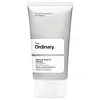What's inside
What's inside
 Key Ingredients
Key Ingredients

 Benefits
Benefits

 Concerns
Concerns

 Ingredients Side-by-side
Ingredients Side-by-side

Water
Skin ConditioningKaolin
AbrasiveSqualane
EmollientGlycerin
HumectantDimethyl Isosorbide
SolventSilica Cetyl Silylate
Salicylic Acid
MaskingSodium Polyacrylate
AbsorbentPentylene Glycol
Skin ConditioningCharcoal Powder
Abrasive4-T-Butylcyclohexanol
MaskingSclerotium Gum
Emulsion StabilisingAcacia Senegal Gum
MaskingXanthan Gum
EmulsifyingPhytic Acid
Polysorbate 20
EmulsifyingTrisodium Ethylenediamine Disuccinate
Chlorphenesin
AntimicrobialPhenoxyethanol
PreservativeWater, Kaolin, Squalane, Glycerin, Dimethyl Isosorbide, Silica Cetyl Silylate, Salicylic Acid, Sodium Polyacrylate, Pentylene Glycol, Charcoal Powder, 4-T-Butylcyclohexanol, Sclerotium Gum, Acacia Senegal Gum, Xanthan Gum, Phytic Acid, Polysorbate 20, Trisodium Ethylenediamine Disuccinate, Chlorphenesin, Phenoxyethanol
Water
Skin ConditioningKaolin
AbrasiveButylene Glycol
HumectantMagnesium Aluminum Silicate
AbsorbentSodium Lauroyl Sarcosinate
CleansingGlyceryl Stearate
EmollientPEG-100 Stearate
Gentiana Lutea Root Extract
Skin ConditioningLaminaria Saccharina Extract
Skin ProtectingSucrose
HumectantAlgae Extract
EmollientAloe Barbadensis Leaf Extract
EmollientSalicylic Acid
MaskingAcetyl Glucosamine
Skin ConditioningInulin
Skin Conditioning1,2-Hexanediol
Skin ConditioningCaprylyl Glycol
EmollientXanthan Gum
EmulsifyingDisodium EDTA
Chlorphenesin
AntimicrobialPhenoxyethanol
PreservativeCI 77891
Cosmetic ColorantWater, Kaolin, Butylene Glycol, Magnesium Aluminum Silicate, Sodium Lauroyl Sarcosinate, Glyceryl Stearate, PEG-100 Stearate, Gentiana Lutea Root Extract, Laminaria Saccharina Extract, Sucrose, Algae Extract, Aloe Barbadensis Leaf Extract, Salicylic Acid, Acetyl Glucosamine, Inulin, 1,2-Hexanediol, Caprylyl Glycol, Xanthan Gum, Disodium EDTA, Chlorphenesin, Phenoxyethanol, CI 77891
 Reviews
Reviews

Ingredients Explained
These ingredients are found in both products.
Ingredients higher up in an ingredient list are typically present in a larger amount.
Chlorphenesin is a synthetic preservative. It helps protect a product against bacteria in order to extend shelf life. In most cases, Chlorphenesin is paired with other preservatives such as phenoxyethanol and caprylyl glycol.
Chlorphenesin is a biocide. This means it is able to help fight the microorganisms on our skin. It is also able to fight odor-releasing bacteria.
Chlorphenesin is soluble in both water and glycerin.
Studies show Chlorphenesin is easily absorbed by our skin. You should speak with a skincare professional if you have concerns about using Chlorphenesin.
Learn more about ChlorphenesinKaolin is a clay. It is used for oil control and to help minimize pores. Like other clays, kaolin has the ability to absorb excess sebum or oil. This can help clean out pores and mattify the skin.
Some types of kaolin may have exfoliating properties. When water is added to kaolin, it becomes a paste with small abrasive particles.
Most kaolin is a white color, but may be pink/orange/red depending on where it comes from.
The name 'kaolin' comes from a Chinese village named 'Gaoling'. Kaolin clay comes from rocks rich in kaolinite. Kaolinite, the mineral, has a silicate layered structure. Kaolinite is formed from chemical weathering of aluminum siilicate minerals.
Besides skincare, kaolin is commonly used to make glossy paper, in ceramics, toothpaste, and as medicine to soothe stomach issues.
Learn more about KaolinPhenoxyethanol is a preservative that has germicide, antimicrobial, and aromatic properties. Studies show that phenoxyethanol can prevent microbial growth. By itself, it has a scent that is similar to that of a rose.
It's often used in formulations along with Caprylyl Glycol to preserve the shelf life of products.
Salicylic Acid (also known as beta hydroxy acid or BHA) is a well-known ingredient for treating skin that struggles with acne and clogged pores. It exfoliates both the skin's surface and deep within the pores to help clear out buildup, control oil, and reduce inflammation.
Unlike AHAs (alpha hydroxy acids), salicylic acid is oil-soluble. This allows it to penetrate into pores which makes it especially effective for treating blackheads and preventing future breakouts.
Salicylic acid is also known for its soothing properties. It has a similar structure to aspirin and can calm inflamed or irritated skin, making it a good option for acne-prone skin that is also sensitive.
Concentrations of 0.5-2% are recognized by the U.S. FDA as an over-the-counter topical acne product.
It can cause irritation and/or dryness if one's skin already has a compromised moisture barrier, so it's best to focus on repairing that before introducing this ingredient into your routine.
While salicylic acid does not increase sun sensitivity, it’s still important to wear sunscreen daily to protect your skin.
If you are looking for the ingredient called BHA or Butylated Hydroxyanisole, click here.
Learn more about Salicylic AcidWater. It's the most common cosmetic ingredient of all. You'll usually see it at the top of ingredient lists, meaning that it makes up the largest part of the product.
So why is it so popular? Water most often acts as a solvent - this means that it helps dissolve other ingredients into the formulation.
You'll also recognize water as that liquid we all need to stay alive. If you see this, drink a glass of water. Stay hydrated!
Learn more about WaterXanthan gum is used as a stabilizer and thickener within cosmetic products. It helps give products a sticky, thick feeling - preventing them from being too runny.
On the technical side of things, xanthan gum is a polysaccharide - a combination consisting of multiple sugar molecules bonded together.
Xanthan gum is a pretty common and great ingredient. It is a natural, non-toxic, non-irritating ingredient that is also commonly used in food products.
Learn more about Xanthan Gum